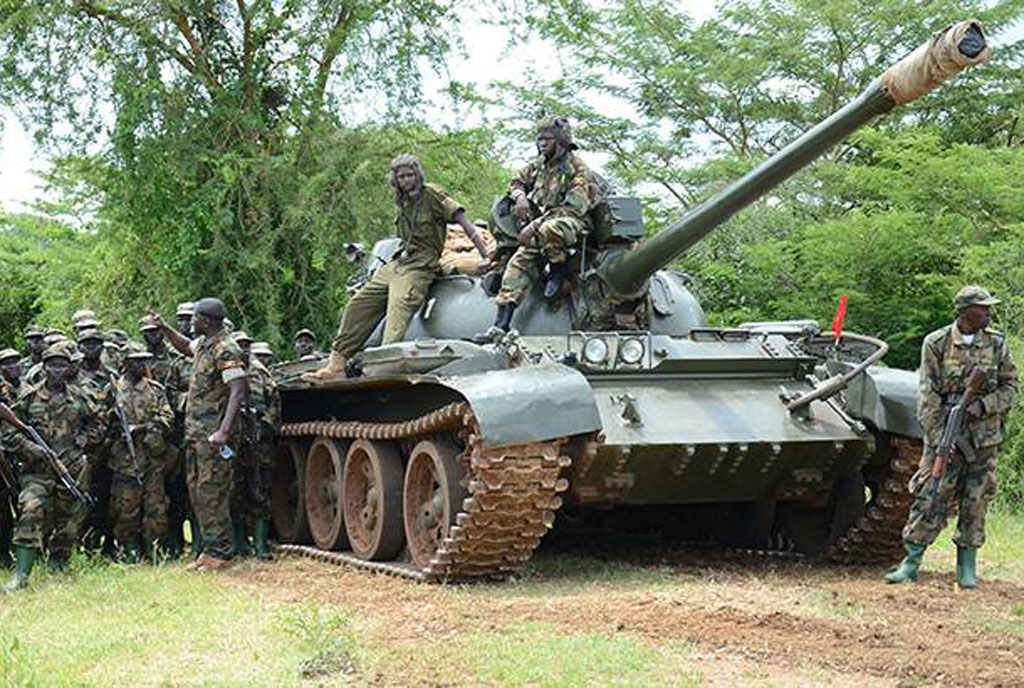Prime
Uganda strikes 4 ADF bases

In August 2021, President Museveni said he had been waiting for consent from DR Congo President Felix Tshisekedi before the UPDF could launch an offensive against the deadly ADF rebel outfit. PHOTO/FILE/COURTESY
What you need to know:
- One source says Uganda’s infantry was by yesterday afternoon advancing to the bombed sites for close combat with ADF fighters.
The Ugandan military yesterday bombed two locations in eastern Democratic Republic of Congo (DRC), one of which highly-placed security sources said targeted the headquarters of Allied Democratic Forces (ADF) and its commander Musa Baluku.
Sukhoi Su-30 multirole fighter jets of Uganda People’s Defence Forces (UPDF) Air Force pounded Irumu and Eringite forests respectively in Ituri and Beni territories of North Kivu province from 3am yesterday.
There was no immediate report of battlefield fatalities or casualties. One source said Uganda’s infantry was by yesterday afternoon advancing to the bombed sites to ascertain the impact of the air firepower.
The operation is code-named Shujaa (Hero), sources intimated to this newspaper, and also on the radar for yesterday’s air raid were a base believed to harbour foreign ADF fighters, another site of its local recruits and a fourth base for “other activities” of the group.
ADF is a Ugandan rebel group whose members, once defeated at home, fled and began hibernating in eastern DR Congo from where they reportedly opened farmlands and conducted business to raise money for operations undisturbed.
Following the 2015 arrest in Tanzania, and eventual transfer into a Ugandan prison, of the group’s founding commander, Jamil Mukulu, ADF radically morphed under successor commander Baluku to the Islamic State Central Africa Province (ISCAP), an affiliate of the global Islamic State terror network.
President Museveni and Uganda Police Force separately blamed the deadly October and last month’s Improvised Explosive Device blasts in Kampala and on an in-motion bus in Mpigi District on ADF and vowed to hunt down its commanders and members.
That offensive matured with air raids in the wee hours of yesterday.
Announcing the onslaught, the fourth into DRC under President Museveni since the 1996-2003 invasion of the country then named Zaire, Uganda’s Defence and Military Spokesperson, Brig Flavia Byekwaso tweeted that: “This (yesterday) morning, we have launched joint air and artillery strikes against (sic) ADF camps with our Congolese allies.”
That was at 11:52am, more than eight hours after the first bomb fell on targets in Beni and new ADF bases in Ituri territory.
UPDF response
In an update issued last night, Brig Byekwaso said that “UPDF in joint operations with their allies – FARDC (the official name of the Congolese army), have today (yesterday) morning attacked a number of terrorists (ADF) who have been killing, looting and/or abducting innocent people in eastern DRC and using IED bombs/bombers to kill people in Uganda”.
She added, without giving the impact, that: “The targets were accurately hit and operations against the terrorists will continue as we look for other targets of opportunity during the ground operations.”
The emphasis by Kampala that this is a joint operation with Congolese counterparts is significant considering the groundswell of media reports and noise by some Congolese politicians, which turned out false, that Kinshasa did not authorise the operation.
First Son Lt Gen Muhoozi Kainerugaba, who is the chief of UPDF Land Forces and the UPDF Mountain Division commander, Maj Gen Kayanja Muhanga, are leading the charge on ADF officially code-named Shujaa, the Kiswahili word for Hero.
This is the second time that Lt Gen Muhoozi, who doubles as senior presidential advisor on Special Operations, is leading an offensive, the first being the unsuccessful December 2008 Operation Lightning Thunder that targeted to kill or capture Lord’s Resistance Army (LRA) leader, Joseph Kony.
It remained unclear how long the new counter-ADF operation (Shujaa) will last or whether, like the 1996-2003 Zaire war, it could suck in some neighbouring and southern Africa countries that either stake similar claims of its subversive elements hibernating in eastern Congo or act in defence of DRC’s sovereignty.



